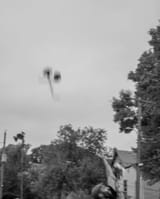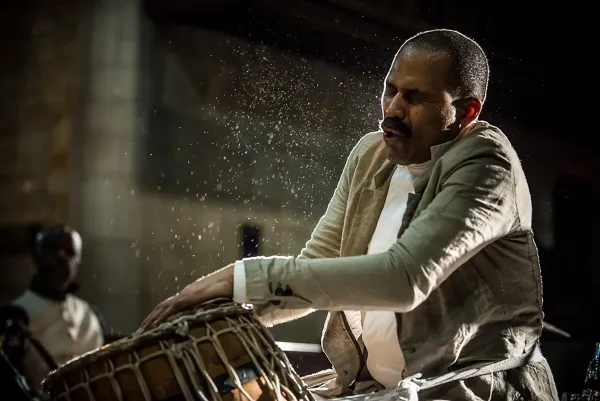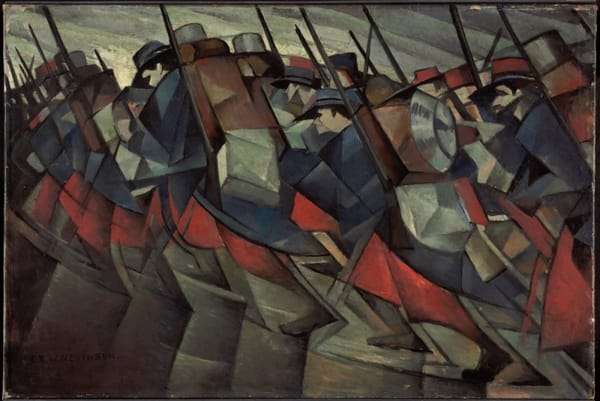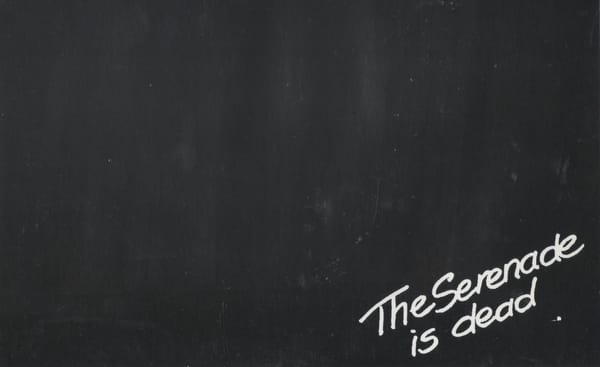Days Like These
For Mimi Parker
It’s hard to know where to start writing about the music of Mimi Parker and Low, which is the very sound of constancy, on days like these. It’s true, there hasn’t been a season of my adult life that wasn’t significantly scored by this music—not since I heard Low’s collaboration with Australian trio Dirty Three for Konkurrent’s ‘In the Fishtank’ series, broaching more and less unlikely pairings of nineties mainstays. I found the disc in the control room of CJUM in Winnipeg, where I hosted a belligerent punk rock radio show with my bandmate Jason. “Lordy” chilled me, a repetitious country vamp or prayerful spin on indie-primitive; Mimi’s voice driving the pleading round, “save my soul,” as her drumming chased the pentatonic briar of strings to its disintegrating finish.
As I worked backwards through Low’s catalogue, I found the songs that would console me at the worst and greatest moments of my life. On ‘Secret Name,’ my first discovery, Low pairs spare chamber pop with hymns to rival the intensity of early Swans, but at a scalded hush. “Don’t Understand” builds on a lone, distorted loop, even resembling the misplaced Appalachian minimalism of “Lordy,” as Mimi Parker’s right hand tolls the ride—an ominous incessance, pressing the uncomprehending singer forward. On “Days of…,” scant brushes of guitar sound with the cymbal pulse as if a single instrument, accenting Parker’s nearly a cappella quaver.
For its several lineup changes (the Kranky era possibly preserves my fondest iteration, with bassist and keyboardist Zak Sally) Low is essentially a power-trio constituted around the voices of Mimi Parker and Alan Sparhawk, partners in music and family alike. There is no entity on earth quite like their harmonies; a single vocal braid, both anima and animus, one in the other at once. “(That’s How You Sing) Amazing Grace,” from ‘Trust,’ demonstrates this integrality; like a call-and-response transpiring inside of an instant, two perspectives in a single breath. The band moves languidly beneath a searing lyric—Low should be known for their handling of deceptive extremes—until the song ends in abyssal decay. I shouldn’t say that it ends—I’ve been in that song for years, as many as it takes to mourn, and when I hear it I remember everything.
From the gnomic miniatures of ‘I Could Live in Hope’ to the post-lexical pop prayer of ‘Hey What,’ Low’s syllables are full to brimming with intent. (“lalalalalalala,” Mimi beseeches on “More,” and I agree.) This isn’t the place for even a preliminary theory of earnestness; but from the visible darkness of depression and without any dissimulating mystique, Alan and Mimi sing songs that mean something, to everyone who ever heard them. In a decade that saw the rise of industrialized irony and endemic disaffectedness, Low showed the value of fidelity and desperation. Seriousness without posture. Clear voices yearning to be heard, and answered. Good chords.
The first time I saw Low was in a tent, downwind of a raucous mainstage at a summer music festival. For all the interference, we were transfixed; I felt as if I could see each chord drifting toward me in peals; it might have been the heat, it might have been the Particle delay, or “Pissing” in near-dark, my unrequited hatred of the world melting away in stupid tribute. It comes and goes to this day. In years to follow, I saw Low many times in many cities, none so special as those shows in Minnesota where the setlist sprawled and most requests were honoured from the stage. I remember: on a night of special desperation, on the brink of one of my worst ever decisions, since averted, I learned that Low was playing a block away from my then-place of work. I had no idea how I’d missed the announcement, but I found my resale tickets and paid just in time to join the room as the band took the stage, backlit and brooding happily.
It took me a moment to recognize the first track on their then-most-recent album ‘Double Negative.’ Recorded, “Quorum” starts with purrs of static, choral wisps beneath a sheath of noise, before syrupy, pitch-shifted voices state the theme. On first hearing, I’d asked if the technologically vitiated reticence of this vocal smearing somehow suits the lyric, otherwise one of the band’s most direct negotiations of faith and its social strictures: “I am not above the law/I can only go so far,” Mimi repeats in an intelligible climax. Live, however, several cilia-splitting production decisions were stripped away, and the self-estranged song unfurled as it might have in the decade prior, with bell-like open chords and heavy cymbals on the beat. By the staple closer, ‘Murderer,’ I had been opened up to every possibility that my last year had repressed: I mouthed the lyric, alternating sobs, rehearsing an incomprehensible conviction. I went home singing and I did the right thing.
When I heard that Mimi Parker had died, I was standing in a field. It was unseasonably warm, and there were people all around me, none of whom I knew. I cried for someone whom I’d never met, I cried for Alan, and I texted friends. I listened to my favourite songs, “In Metal,” “Disappearing,” “Shame,” “The Plan,” “Point of Disgust,” the list goes on as it should. I felt the subtle change in things and sat still for as long as I could stand, and ten days later I wrote this, hoping to keep that feeling of raw gratitude. Thank you Mimi, and Alan and Low, for the music.
The Plan (The Curtain Hits The Cast)
(That’s How You Sing) Amazing Grace (Trust)
Lordy (In the Fishtank 7)
Don’t Understand (Secret Name)
Quorum (Double Negative)
More (Hey What)
Murderer (Drums and Guns)
Point of Disgust (Trust)
In Metal Intro (Things We Lost in the Fire)
In Metal (Things We Lost in the Fire)
Shame (Long Division)
Days of … (Secret Name)
Pissing (The Great Destroyer)
Disappearing (Hey What)





